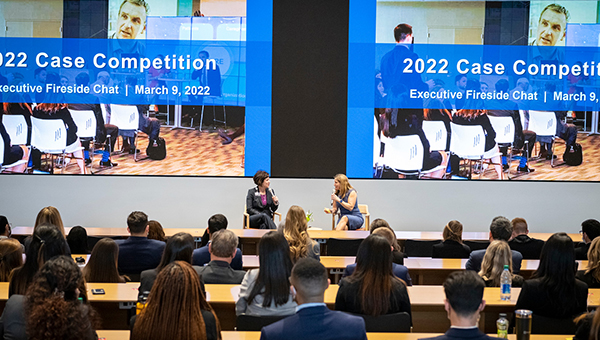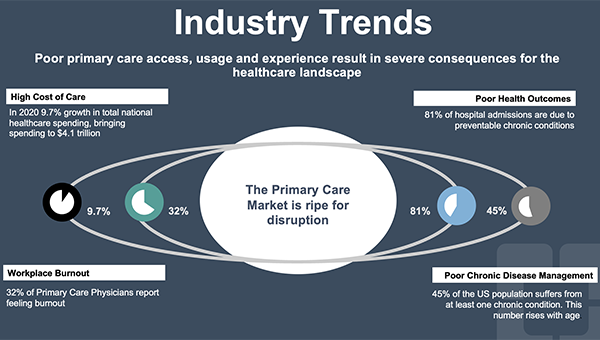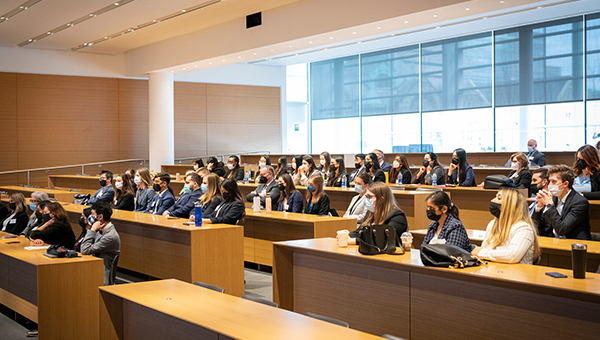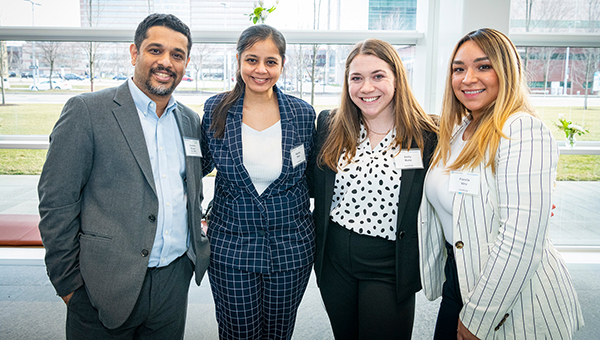A team of Master of Health Administration students – Rajisha Shah, Fiorella Vera, and Emily Muha– represented the Bloustein School at the Cleveland Clinic Case Competition Tuesday, March 8 through Wednesday, March 9, 2022.

Sponsored by Cleveland Clinic, more than 82 teams from 41 universities competed. The competition is designed to offer graduate-level students in health administration the opportunity to apply their coursework to a real-world situation and develop recommendations to a team of executives at an internationally recognized health system. Participants are given a weekend to develop recommendations, which are reviewed by a team of Cleveland Clinic caregivers before being invited to participate in the next round.
“This competition is one of the most reputed ones in the country with rigorous competition,” said team leader Rajisha Shah. “After being given the case, our team brainstormed and submitted a case solution within 72 hours. Three weeks later we were notified that we qualified for the Quarterfinals and were invited to compete on-site!”

The Bloustein School team case was to analyze primary care market trends and figure out what is the best for healthcare systems—for example, to compete or collaborate with primary care disrupters. “Our unique solution was to partner with these disruptors for secondary and tertiary care, but build on the Cleveland Clinic Primary Care model too,” said the team. “Given the nature of the competition, it was a great challenge to have everything done in a short period of time. In the end, it was a rewarding and unforgettable experience. We were thrilled to qualify as one of eight semi-finalists among the 82 participating teams,” the team said.
Healthcare disruptors are companies that are shifting the healthcare industry by making changes to significantly redefine the way care is delivered by changing the way things have always been done, for example through the integration of new technologies or streamlining processes. They also seek to shift the consumer healthcare experience, having people rely less on hospitals and emergency health services.
“We are pleased to have such a mature student body committed to improving the profession,” said Raphael J. Caprio, University Professor and Director, Master of Health Administration programs. “The school and its faculty couldn’t be prouder of their performance in these highly competitive competitions.”

“We are delighted to see our students performing well in these healthcare care case competitions,” added assistant professor Soumitra Bhuyan, Ph.D., who serves as coach of the Rutgers MHA case competition teams. “They are great opportunities for students to exchange ideas with their peers as well as network with healthcare professionals from around the country.”
One of the biggest challenges the team faced was to work together after having just been introduced to their teammates. “It made us realize our competencies and what each one of us is good at. It taught us to respect every opinion and incorporate it into our plan for the case. We bonded as a team and look forward to working together again.”
“The competition tested how quickly we can think to our feet. The guidance from our coach Professor Bhuyan was invaluable, and we are looking forward to more such opportunities in the future,” said Shah. “On the day of the finals, the leadership at Cleveland spoke to the students and shared some great insights.”

“This was my first case competition and while challenging, it was so rewarding to get to know my fellow teammates better,” said team member Emily Muha. “It was also a great opportunity to meet the administrative fellows at Cleveland Clinic as well as students from other programs.”
For more information about the Rutgers Master of Health Administration at the Bloustein School, visit mha.rutgers.edu.
